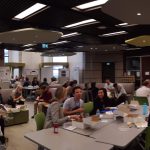
The theme for the ELPUB 2018 Conference is Connecting the Knowledge Commons: From Projects to Sustainable Infrastructure. The question of sustainability in the open access movement has been widely debated, yet satisfactory answers have yet to be generated.
Who you are
If you have ideas or tools to share, want to contribute towards concrete actions, or simply care about sustainability of open infrastructures, then you should participate!
- Are you working on innovative programs, community-based initiatives, new technologies, or experimentations in transforming the nature of scholarly communications?
- Are you part of a non-commercial, not-for-profit and/or commons-based model for the creation and dissemination of knowledge?
- Are you someone interested in culture change and challenging existing norms in scholarly communication and knowledge production?
- Are you a student or early career researcher interested in being a leader in the establishment of new evaluation standards and metrics for careers in scholarship?
- Are you a scholar from the global south interested in expanding the norms, practices, and policies that promote equitable access, sharing, and production of scholarship?
- Are you a non-academic knowledge-making organization interested in facilitating greater knowledge sharing between research and the broader community?
- Are you a funding body interested in developing projects that contribute to the open sharing of research, accelerating discovery and maximizing research impact?
- Are you a policy maker interested in evidence-based policy-making and using open research to make informed choices and policy decisions?
- Are you a librarian concerned with information inequalities, the growing costs of journal subscriptions and removing barriers to access information?
- Are you a designer or developer working on creating new tools or technologies in scholarly communication?
If you answered yes to any of the above questions – we want you to attend!
Why you should attend
We are looking for participation from not-for-profit organizations, social impact initiatives, funders, and community-minded individuals to realize the goal of co-designing and implementing a sustainable community-driven research communication infrastructure.
In recent years we have seen many promising open research initiatives, however most of these are short-term funded projects that are largely uncoordinated. The result is that we still have a rather fragmented landscape. How can we create connections between these separate initiatives to work together to achieve broader, deeper and lasting change?
At the same time, market-driven approaches of open access are growing in prevalence, as well as a growing dependence on commercial publishers for the infrastructures needed to openly and democratically create and communicate knowledge. How can we put the creation and dissemination of knowledge back into the hands of the research community?
Time has come to put principles into practice, collaborate on actions and build alliances needed to act collectively – and we need your input and participation to do so!
Key conference takeaways - participants and partners will:
- Connect with diverse stakeholders to identify shared values and opportunities for collective action.
- Identify barriers and opportunities for individuals and organizations to create knowledge and access to research.
- Collaborate on strategies to challenge existing barriers to participation.
- Create new networks to share knowledge, practices, and resources.
- Learn about innovative technologies, initiatives, and explorations in research and data.
- Challenge established norms in scholarly communication and research.
- Broaden perspectives on compensation for research efforts, including the fostering of mutual understanding around innovative technologies and possible governance, financial, service, and publishing models.
- Determine areas of mutual support and capacity-building for communication infrastructure in diverse settings.
Next steps!
Consider presenting or hosting a workshop at the conference. You can review the call for papers and participation here.
Sign up for our e-newsletter to stay abreast of all conference news and important dates, or follow us on Twitter or Facebook.
Mark your calendar – early registration opens February 1!
Featured image credit: Photo by William Bout on Unsplash





